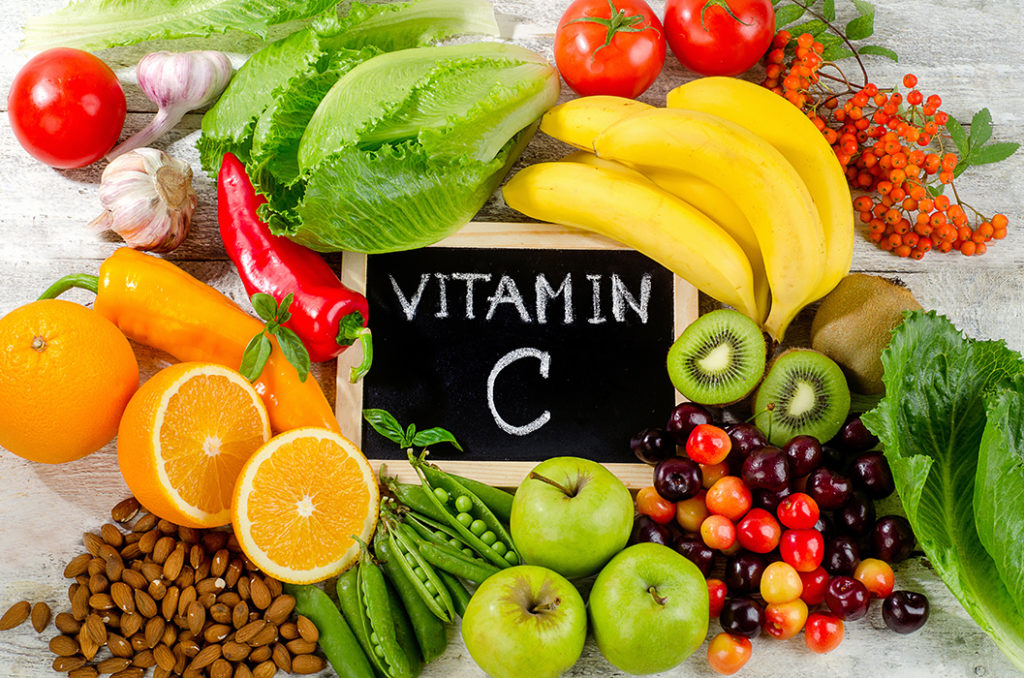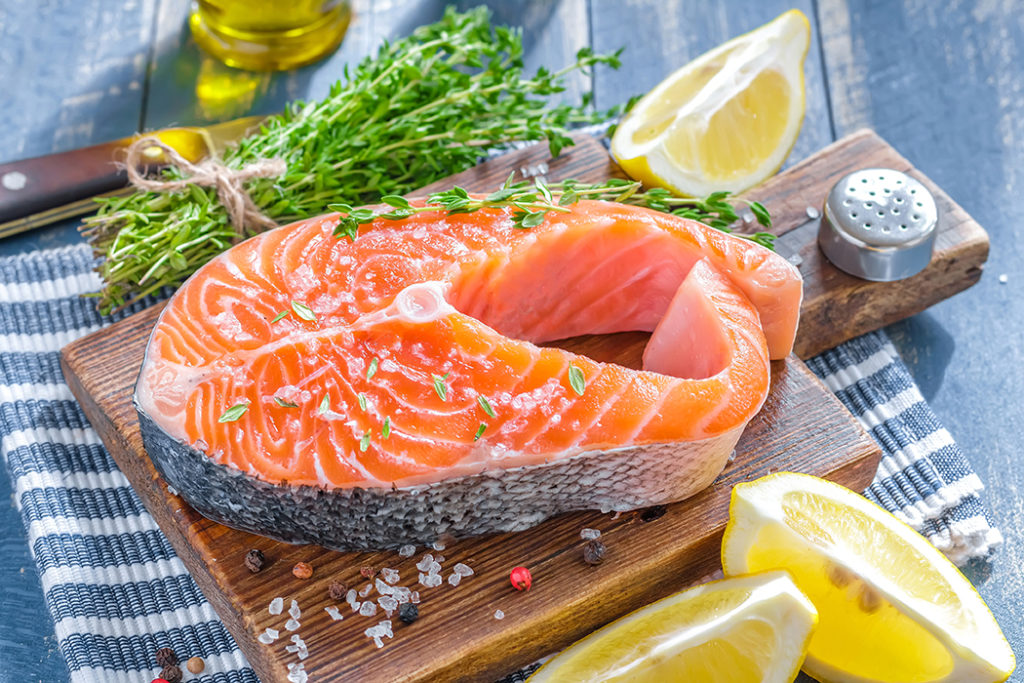Boosting your immune system – what vitamins do you need?

Faced with a global pandemic, it’s important to support your immune system with some key vitamins, so we asked Jen Mackinder, Naturopathic Nutritional Therapist at Gusto Organic, for her advice on the most important ones to include in our diet…
The immune system is made up of a network of cells, tissues and organs that are continuously barraged by pathogens (viruses, bacteria and infections). We are all dependent on the health and integrity of our immune system to protect us. There are two parts to the immune system: the innate immune system, which is the immunity that you are born with; and the adaptive system, that you develop over time as you get exposed to different pathogens.
Our innate system includes all of our body’s first line defences and includes the skin, nose, throat, lungs, as well as tears, tissue fluids, stomach acid and sticky mucosal linings. It provides broad protection and is quick to react to any threat.
Our adaptive system is more specific. When these barriers are compromised and infections and viruses are present, our adaptive system kicks in. This is a specialised response. Our leukocytes (white blood cells) initiate a response including the release of cells and proteins that fight off infection.
Digestive system
The gut houses 70% of the immune system, therefore good health in the digestive system leads to good immune health. It has recently become obvious that alterations of these gut microbial communities can cause immune dysregulation, leading to autoimmune disorders and a weakened immune system.
The largest mass of immune-supporting cells is found in the gut. These can be enhanced by dietary changes such as eating prebiotic foods that feed bacteria such as garlic, onions, leeks, oats, chicory and asparagus.
It’s equally important to replenish good bacteria in our guts which can often be depleted by antibiotics. Probiotics, which are live bacteria and yeasts, are great for digestive systems. These can be taken in supplement form and can also found in foods such as kefir, sauerkraut and kombucha.
We are so reliant on the health and integrity of our immune function; from colds, viruses and recurrent infections through to allergies and debilitating autoimmune conditions, which impact many people on a daily basis. Ensuring we have adequate amounts of vitamins and minerals together with a healthy lifestyle, stress management, exercise, gut health and the use of plant-based medicines is critical to our health.
What vitamins are best to protect against viruses?
Vitamin C, Vitamin D, Zinc, Vitamin A (50% RI) and Folic Acid all play their part in protecting our bodies against pathogens. Try to include vitamin boosting food and drink in your diet to give your immune system a boost.
Vitamin C
A crucial vitamin for immune health is Vitamin C, otherwise known as Ascorbic Acid. We cannot produce vitamin C ourselves and our bodies can’t function properly without having an abundance of it. We are reliant on it, particularly when viruses are present, as our vitamin C requirements go through the roof!
Vitamin plays a significant role in supporting immune function by downregulating the inflammation pathway. Many studies have proven that this essential vitamin reduces the duration of colds and recurrent infections and also aids with wound healing.
Consuming a high dose of vitamin C is hugely beneficial with little or no downside. As it’s a water-soluble vitamin, the body tends to absorb what it needs, and pass out what it doesn’t.
Studies have shown that vitamin C can both support and strengthen the physical barriers of the immune system, as well as enhance the ability of white blood cells to fend off infections.
Did you know that all animals except humans, primates, guinea pigs and a handful of other species are able to make their own vitamin C? Humans have lost the essential enzymes which synthesise vitamin C leaving us completely reliant on our diet to get our daily dose.
No surprise, then, that deficiencies in Vitamin C are common and can leave us more susceptible to infection or leave you feeling ill for longer.
Vitamin D
Vitamin D has been all over the press recently with new evidence highlighting the mechanisms of vitamin D, a crucial component of the immune system and critical for warding off infection, which acts as a defence against bacterial, viral or yeast infections.
Vitamin D3, also known as the sunshine vitamin, is synthesised from the sun. There are few dietary sources of vitamin D; oily fish, liver, eggs and butter provide the richest sources. Therefore, deficiency is extremely common, with an estimated 40% of people lacking this essential vitamin. Deficiencies are also exacerbated during the winter months when we get less exposure to the sun and the sun’s rays are at their weakest.
Lack of vitamin D can result in symptoms such as a burning mouth, softening of bones and teeth, osteoporosis, rickets, inflammation, type 2 diabetes, joint pain and a weakened immune system and are also common among individuals with inflammatory conditions and autoimmune disorders.
Aside from fighting the foreign invaders of our immune system, studies have shown that Vitamin D works in combination with Vitamin A to maintain healthy skin. Both of these vitamins control the growth of new skin cells and promote keratinocytes, the key cell found in our skin. This synergy also aids the development of new white blood cells, essential for recognising and attacking viruses and bacteria
Zinc
Another key component of keeping your immune system strong is Zinc. Zinc deficiency is common, with around 75% of us deficient in the world.
Zinc supports the metabolism of Vitamin A, which protects cells from oxidative stress and is responsible for hundreds of body processes. Zinc is really important for fighting off infection and to support wound healing from the inside and outside of our bodies as it keeps our cell membranes strong preventing pathogens from entering, so deficiencies make us much more susceptible and weaken our immune system.
Vitamin A
Vitamin A can support immune dysfunctions in the gut, together with systemic immune disorders. It can be critical in keeping your innate immune system’s physical barriers such as the lining of your gut super healthy.
Folic Acid
Folic Acid plays a part in synthesizing protein and DNA. Otherwise known as B9, it produces and maintains new cells and helps prevent alterations to DNA causing health conditions and the depletion of natural killer cells which decrease with age and help fight off infection.
Wishing you the very best of health!
About the author
Jen Mackinder is a Naturopathic Nutritional Therapist at Gusto Organic, creators of Super DC. Super DC Blood Orange blends Sicilian blood orange juice with white grape to deliver a refreshingly zingy burst of citrus. High in anthocyanins, the blood orange is a uniquely fragrant and complex flavoured fruit that Gusto buys direct from a farm on the foothills of Mount Etna.
Super DC Blackcurrant and Elderberry offers dark complex notes of elderberry complemented with fresh tart blackcurrant juice, with a generous glug of apple juice to sweeten. Apple juice has a naturally low glycaemic index and whilst keeping calories down, delivers a rich flavour of the British orchard and hedgerow.
Both Super DC drinks are bursting with vitamins. Each containing two grams of vitamin C delivering 2500% reference intake (RI) of your daily vitamin C requirement. With 500mg from plant extracts in the form of the Acerola Cherry, an untapped functional superfruit, and one of the richest natural sources of ascorbic acid. The drink also contains 200% RI of vitamin D, from a vegan source. It is a little-known fact that much of the vitamin D for sale comes from diverse animal sources such as lambs’ wool, krill or cod liver oil. Super DC also has 100% of your RI of vitamin K and Folic acid and 50% your RI of zinc and vitamin A.







